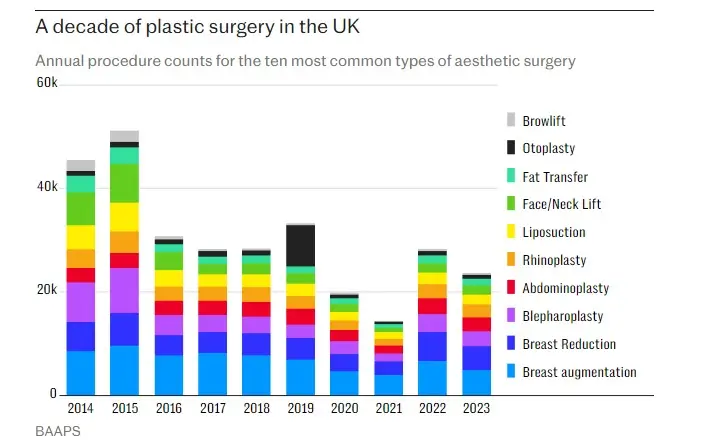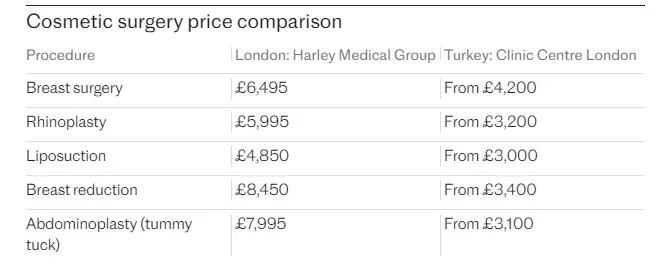
In the past year, an estimated 150,000 Britons traveled to Turkey for cosmetic surgery, drawn by significantly lower costs and enticing package deals. One such individual, Marianne Green, 30, from Grimsby, Lincolnshire, shared her positive experience with the Telegraph, highlighting the affordability and convenience of her trip. Green paid £3,100 for breast implants in Turkey, a stark contrast to the £7,000 quotes she received from UK-based surgeons. Her package included a four-star hotel stay and comprehensive transportation services.
Despite the allure of cheaper procedures abroad, the UK’s cosmetic surgery industry is facing serious challenges. The recent collapse of SK:N Clinics, the prominent Harley Medical Group owner, underscores this issue. Founded in 1990, the Birmingham-based firm was a major player in the UK cosmetic surgery market but could not compete with the more affordable overseas options.
According to the British Association of Aesthetic Plastic Surgeons (BAAPS), the UK saw a 16% decline in cosmetic procedures in 2023, with significant drops in popular surgeries like breast augmentation, breast reduction, and abdominoplasty. BAAPS President Marc Pacifico noted that the trend of seeking surgery abroad has led to complications, often leaving the NHS to manage corrective procedures. Dr. Ash Soni, a plastic and reconstructive surgeon in the UK, highlighted that while Turkey offers cheaper procedures, the training and materials used may not meet the same standards as those in the UK. Despite these concerns, many patients, like Green, are satisfied with their results and the level of care they received.


The economic disparity between the UK and countries like Turkey plays a significant role in this medical tourism trend. With the cost of living and economic uncertainty rising in Britain, many individuals see cosmetic surgery abroad as a financially viable option. As the Telegraph notes, the comprehensive packages offered by Turkish clinics, which often include accommodation and transportation, add to the appeal, making it more than just a medical trip but also a holiday experience.
However, this trend has broader implications for the UK healthcare system. As more Britons travel abroad for procedures, the NHS faces increased pressure to address post-operative complications from surgeries performed in countries with different medical standards. This strain on public health resources raises questions about the sustainability of the current situation and the need for better regulation.
Looking ahead, the UK cosmetic surgery industry must find ways to adapt to these changes. This might include offering more competitive pricing, enhancing patient care, and leveraging the UK’s rigorous training and quality standards as selling points. As the Telegraph highlights, the challenge lies in balancing affordability with safety and quality, ensuring patients receive the best possible outcomes regardless of where they choose to undergo surgery.




